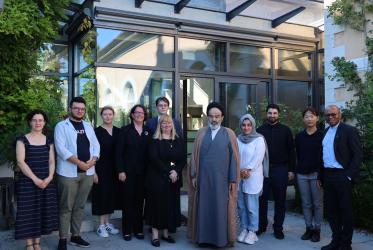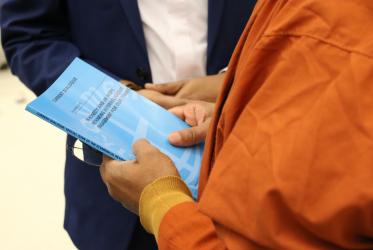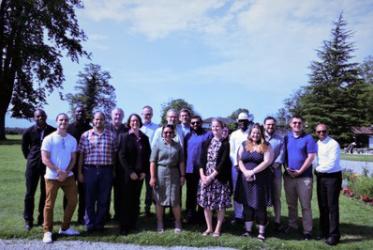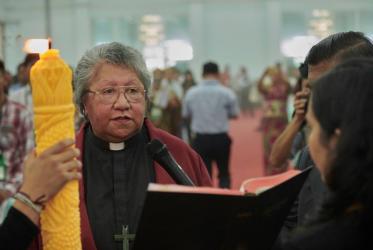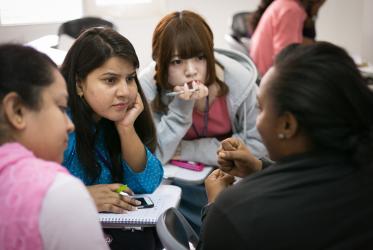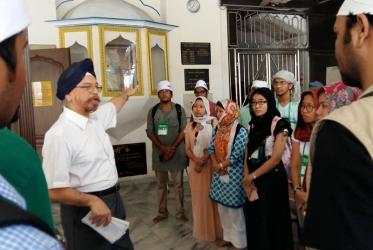Displaying 1 - 20 of 27
Festivities and dialogue launch new WCC journal
07 February 2020
Bossey gathers students for interreligious dialogue
02 July 2019
#WCC70: Nathan Söderblom, ecumenical pioneer
29 August 2018
Pope Francis at the World Council of Churches
31 May 2018
WCC students study what makes a peace communicator
18 July 2017
Jewish-Christian relations highlighted in latest Current Dialogue
29 November 2016
